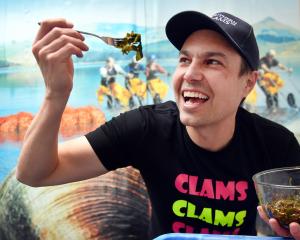
The council bought the site in February 2023 for $924,000 to prevent any commercial mining from restarting there and to preserve the fossil record.
Since the purchase, $184,000 had been spent on topsoil and spreading for dust suppression, a council spokesman said.
Other operational land costs, such as rates, added up to $3500 since the purchase.
Foulden Maar, a former crater lake, contains large deposits of diatomite, preserving an ancient rainforest ecosystem.
Fossils preserved there include pollen, leaves, flowers, fruits, fish and insects.
The council is considering future arrangements for the site, including allowing access for scientific research.
In the meantime, the council, as the landowner, has compliance obligations to meet under its resource consent, including control of dust.
Delays in allowing ongoing research at the site have caused some frustration and the council has called it a complex situation.
The council spokesman said there had recently been a site visit with University of Otago representatives.
Future arrangements for the site are due to be put in front of councillors before October’s elections.
In July, Cr Lee Vandervis identified Foulden Maar and Dunedin’s Forbury Park as "unused or liability properties", among other "redundant pieces of DCC land".
Cr Vandervis, a Dunedin mayoralty candidate, referred at the time to $100,000 being spent at Foulden Maar since the purchase to cover dust and keep people out and this had been a "scandalous, misrepresented waste of money, in my view".












